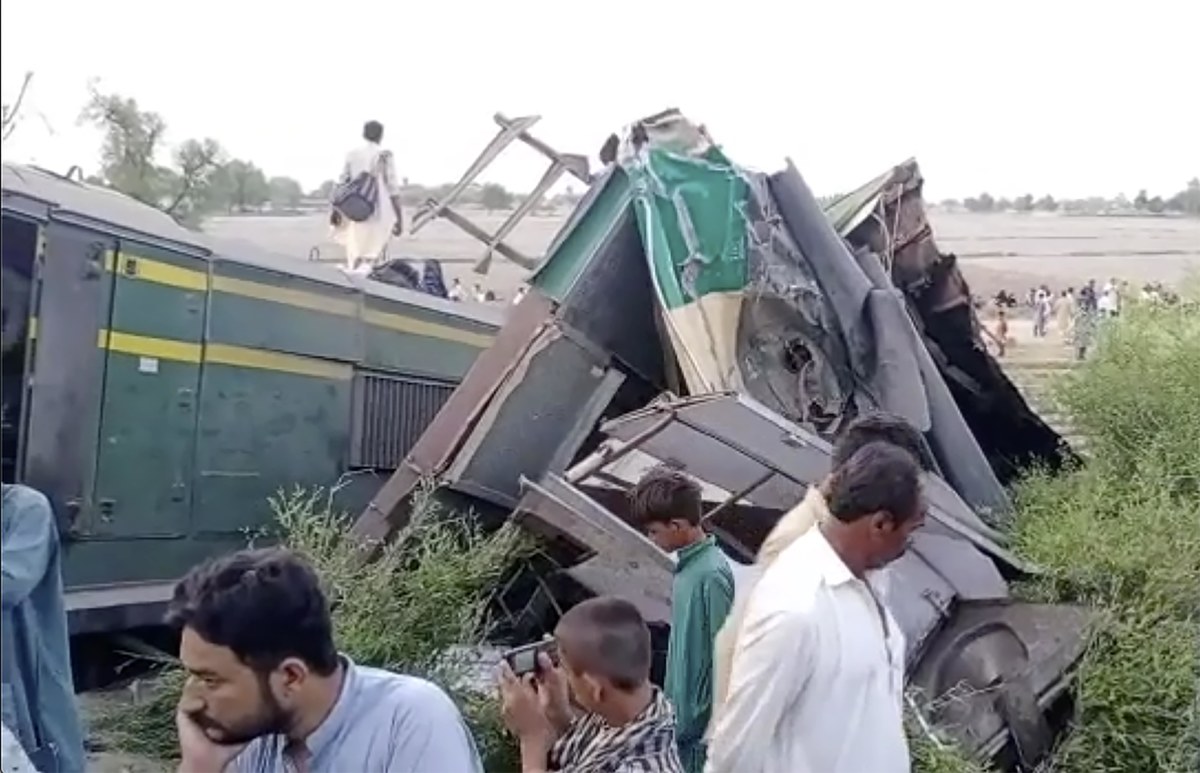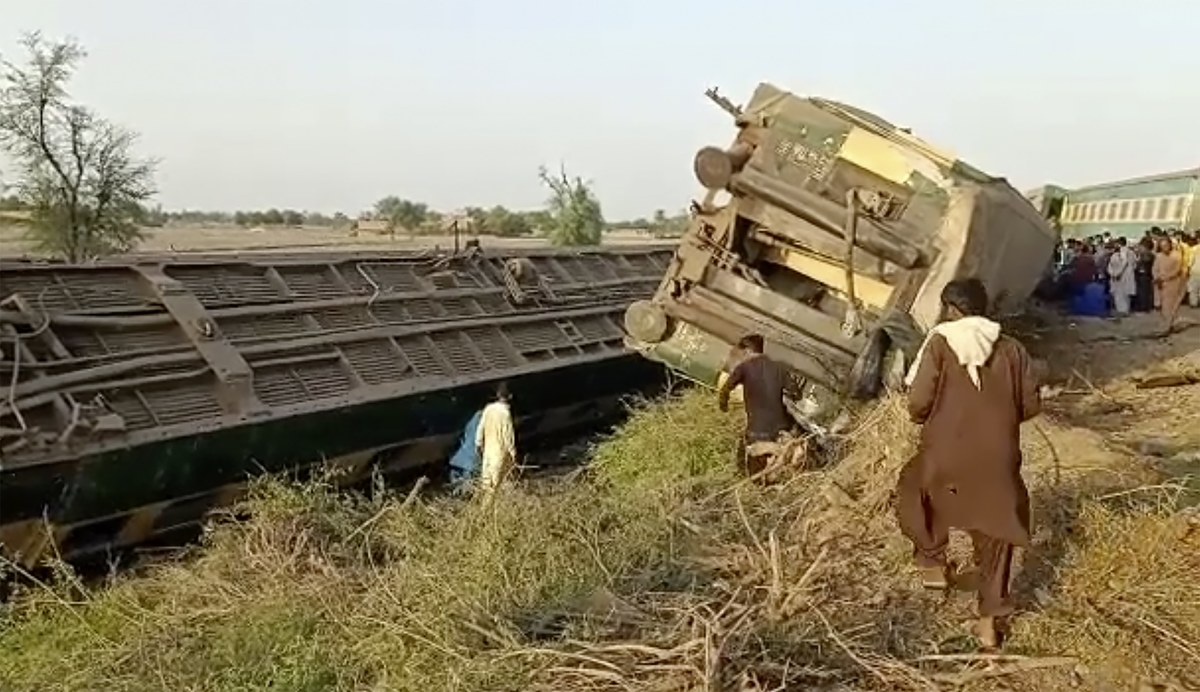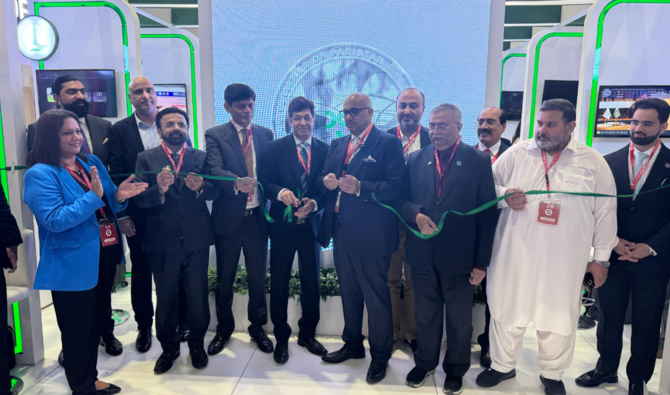MULTAN: Two express trains collided in southern Pakistan early on Monday, killing at least 35 passengers, authorities said, as rescuers and villagers worked to pull injured people and more bodies from the wreckage.
Between 15 to 20 passengers are still trapped in the wreckage of the Millat Express train and authorities were trying to arrange heavy machinery to rescue those people who are crying for help, said Umar Tufail, a police chief in Ghotki district in Sindh province, where the collision occurred before dawn.
The Millat Express derailed and the Sir Syed Express train hit it soon afterward, said Usman Abdullah, a deputy commissioner in Ghotki. It wasn’t immediately clear what caused the derailment and the subsequent collision.

This image from a video, shows people gathering at the site of a train collision in Ghotki, Pakistan Monday, June 7, 2021. (AP Photo)
“Right now the challenge for us is to quickly rescue those passengers who are still trapped in the wreckage,” he said.
Azam Swati, minister for railways, told The Associated Press that so far 35 people had died and dozens of others were injured. “I am on my way to the Ghotki district where the tragic train accident happened today,” he said. Swati said engineers and experts were trying to determine what caused the collision.
He said all aspects will be examined, including the possibility of sabotage. “We are not sure about the cause of the train accident at this stage,” he said.
According to railway officials, about 1,100 passengers were on board the two trains, and arrangements were being made to assist the survivors.

This image from a video, shows trains after a collision in Ghotki, Pakistan Monday, June 7, 2021. (AP Photo)
According to a military statement, troops were also participating in the relief and rescue at the scene. It said military doctors and ambulances were also dispatched from a nearby city and a team of military engineers was sent to Ghotki by helicopter.
According to local media, some of the passengers were traveling by the Millat Express train to attend a wedding party but it was unclear whether they were among the dead or injured.
TV footage showed ambulances transporting injured passengers to hospitals. According to Pakistani TV stations, heavy machinery had not reached the scene about four hours after the crash.

This image from a video, shows a train after a collision in Ghotki, Pakistan Monday, June 7, 2021. (AP)
Pakistan’s prime minister expressed his deep sorrow over the tragedy. Imran Khan said on Twitter that he had asked the railway minister to supervise the rescue work and also ordered a probe into the crash.
Officials at Pakistan railways said they had ordered an investigation and rescue work was still in progress. Aijaz Ahmed, the driver of the train that collided with the derailed train told Pakistan’s Geo News TV that on seeing the derailed train cars, he tried his best to avoid the accident by braking but failed. He did not explain how he survived.
Officials said at least 50 passengers had been transported to the hospital, where some of the passengers were listed in critical condition.
Malik Aslam, a local villager, told Pakistan’s Geo News TV that about 100 people were injured and he counted at least 30 bodies of passengers during the rescue and recovery work.
Train accidents are common in Pakistan, where successive governments have paid little attention to improving the poorly maintained signal system and aging tracks.
In 1990, a packed passenger plowed into a standing freight train in southern Pakistan, killing 210 people in the worst rail disaster in Pakistan’s history.

















